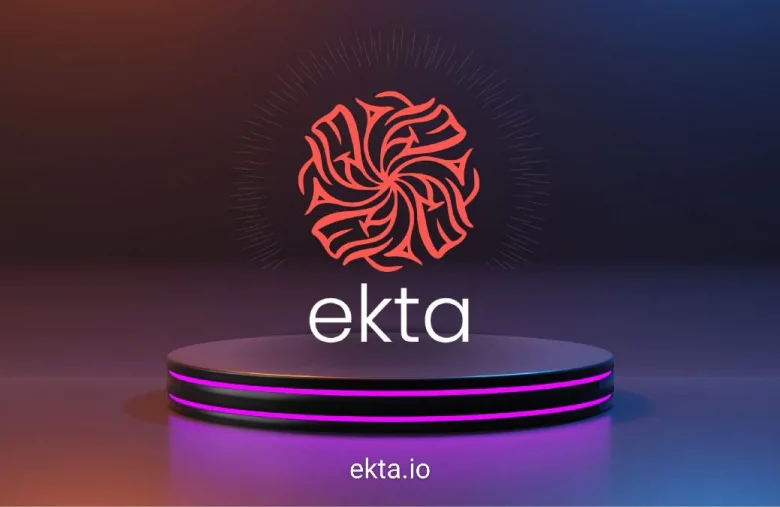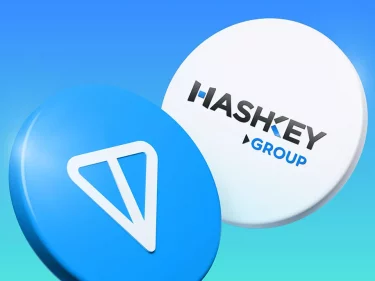
Non-fungible tokens (NFTs) are gradually revolutionizing asset ownership as we know it. The emerging asset class has established its presence in various industries, including real estate.
It’s worth noting that non-fungible tokens are considered one of the most direct on-ramps to the cryptocurrency industry for retail users. They were also thought to be the driving force between the parabolic surge in interest behind NFTs in 2021 and the beginning of 2022.
Many proponents suggest various use cases for non-fungible tokens spanning from art and music to real estate and accounting.
Harnessing the potential of blockchain-based technology in NFTs, Ekta delivers a marketplace geared to eliminate the middleman involved in purchasing real estate.
What is Ekta?
Ekta is a new blockchain network that created an infrastructure targeted at bringing physical assets on-chain. The project was designed to integrate traditional industries and physical assets into the blockchain via the tokenization of real-world assets.
Launched in early 2021, Ekta is committed to removing the hassles investors face when trying to invest in real-world assets, such as real estate, in the virtual world. Ekta aims to build an ecosystem that bridges the physical and virtual world, effectively eliminating every centralized governance system to bring people from different parts of the world together.
The Ekta Real Estate NFT Marketplace
One way Ekta is achieving its goal is through its real estate NFT marketplace. The project has developed a decentralized platform targeted at eliminating all the intermediaries involved in the purchase of real estate via its real estate NFT marketplace. Ekta intends to simplify the property buying process while allowing users to maximize their investments through rental income, price appreciation, fractionalization of assets, staking, and more.
By tokenizing ownership of real estate properties, investors simply have to purchase NFTs from the platform to claim ownership of a particular property. The platform employs smart contracts that allow users to make rental income from their investments without having to chase down tenants to collect rent.
While other projects in the market offer similar services as Ekta, the project is working on something that makes it different from other platforms. What is it? Let’s find out.
How Does the Ekta NFT Marketplace Work?
Ekta has been actively partnering with some of the biggest and most reputable real estate developers in Southeast Asia and plans to expand to Australia and other markets in the future. Its initial offerings will include the largest lifestyle brand in Indonesia located on the famous island of Bali. It intends to tokenize these real-world physical assets and make them more accessible to investors from various parts of the world.
However, these tokenized assets might be too expensive for most investors, making them accessible only to wealthy clients. To foster inclusion and lower the entry barriers, Ekta introduces the concept of fractionalized NFTs.
In the real world, the fractionalization of physical assets involves several individuals pooling their resources to gain joint ownership of the underlying assets. The assets are divided into stakes held by the various parties involved in the deal. This is a very complex and often unattainable process.
Ekta’s fractionalized NFTs, dubbed F-NFTs, are split into several smaller NFTs that are more affordable than the bulk token. This allows more people to gain access to these tokenized interest-yielding physical assets at a lower cost. The NFTs can also represent any physical asset in the world, including coral reefs, private islands, forests, yachts, private jets, and much more.
F-NFT Holders can also generate passive income from the appreciation of property prices or rents without going through the hassles typically associated with owning physical property. Additionally, since the transactions are conducted via Ekta’s blockchain network and smart contracts, clients are assured that their transactions are safe and secure with fast transaction times and low fees.
To purchase F-NFTs on the Ekta real estate NFT marketplace, users must hold the network’s native token called EKTA. Interested buyers are given access to important details about the underlying property, including its location, pictures, price, estimated appreciation, projected return on investment (ROI), real-world notarized documentation, and much more.
By leveraging the power of blockchain technology, the price of Ekta’s fractionalized interest-yielding assets will increase as the underlying physical property appreciates. This will allow token holders to earn dividends, yields, and more.
The EKTA Token
EKTA is the in-house utility and governance token of the Ekta ecosystem, powering every activity carried out on Ekta.
EKTA tokens are used to purchase F-NFTs on the Ekta real estate NFT marketplace and for transactions on other ecosystem platforms. The token also aids in the ecosystem’s governance, allowing holders to vote on certain decisions that could affect the project’s future.
The tokens are non-mineable as Ekta intends to greatly reduce its carbon footprint, considering that there has been a long-standing argument about the energy consumption of mineable cryptocurrencies.
Holders can maximize their profits by staking their EKTA tokens on the platform. Ekta offers users a high annual percentage yield (APY) on their staked assets, up to 150%.
According to data from CoinMarketCap, EKTA has a total max supply of 420 million tokens, with a current circulating supply of 12 million tokens. Ekta also boasts a TVL (total value locked) of $350 million and potentially the best TVL/market cap ratio in all of crypto. The price is currently at $4.54 at the time of press.



